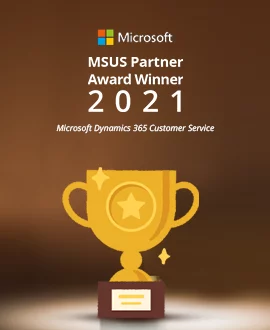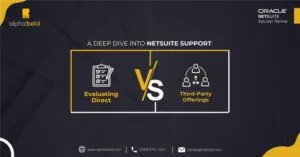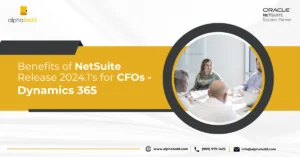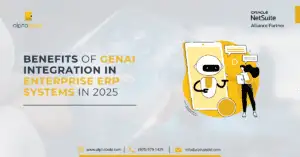Introduction
The global ERP software market is expected to reach $78.4 billion by 2026. This number highlights the expanding footprint of ERP solutions within the global enterprise software landscape. An ERP system harbors huge data reservoirs, constantly being reformed by adopting artificial intelligence (AI), cloud technology, blockchain, Internet of Things (IoT), and advanced integrations. Given the growing user awareness and regulations, these are some popular ERP system trends businesses should pick up to stay competitive. The emphasis is on incorporating more analytics, machine learning, and automation within ERP to handle complex data analysis, predictive modeling, and real-time decision–making. This blog will highlight the potential and impact of popular ERP trends in 2025, tailored to CTOs, CIOs, COOs, and decision–makers.
The Imperative for CIOs to Embrace ERP Trends in 2025 & Beyond
One of the significant shifts in the CIO’s role is the expansion of their technology portfolio. In addition to purchasing ERPs, CIOs are increasingly responsible for personalizing and maintaining ERP solutions. This trend is driven by the need for organizations to differentiate themselves in the market and meet specific business requirements that a native ERP solution can’t address. As a result, CIOs are not just technology consumers but technology creators/optimizers. Therefore, C-level executives can equip their organizations to streamline processes, and drive innovation by embracing 2025 trends such as ERPs powered with technologies like AI, machine learning, extended reality, mobile ERP, blockchain and two-tier ERP.
If you want to familiarize yourself with some basics, this comprehensive guide will help you understand the intricacies of ERP, covering what it is, how it works, and its benefits for businesses, Understanding ERP: What is ERP and How Does It Work?

ERP Selection Checklist
Download our free ERP Software Selection checklist and confidently navigate your journey to the perfect fit.
Learn More
ERP Technology Trends to Watch In 2025
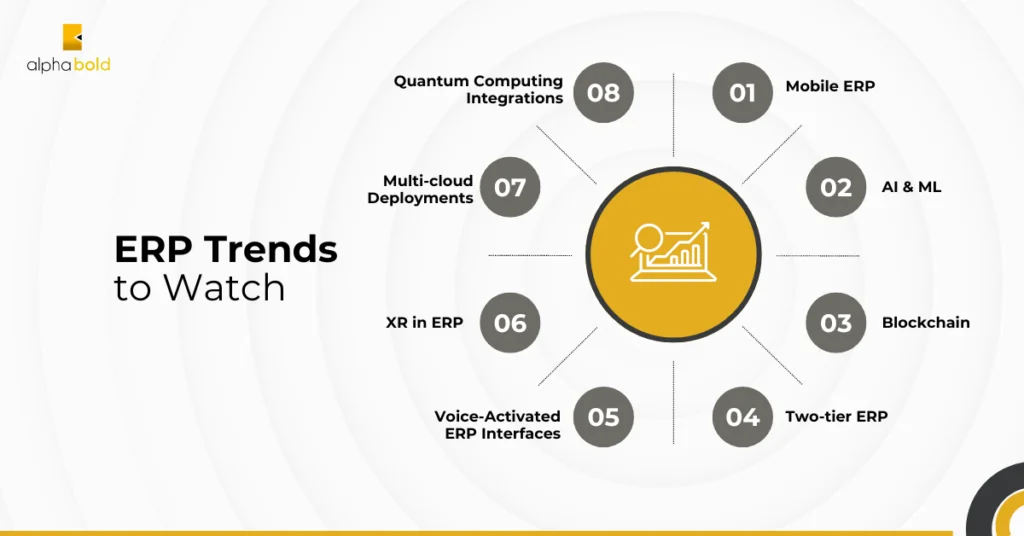
1. Mobile ERP:
Due to the prevalent adoption of mobile devices, the user demand for flexibility and accessibility is undeniable. Mobile ERP is now a critical component of modern enterprise solutions. To give you some context, mobile ERP refers to leveraging mobile applications to access ERP systems anywhere, anytime. This trend can be one of the biggest enablers for managers, employees, and decision-makers to stay on top of business data and processes regardless of geographical location.
The expanding norm of remote workforce is one of the main factors contributing to the popularity of mobile ERP. Traditional ERP solutions limited to desktops or office environments are no longer adequate as more employees work from home or on the go. With the help of mobile ERP solutions, remote employees may operate more productively and efficiently. They can collaborate better with coworkers, access real-time data, and finish tasks quickly. This reduces administrative overhead and enables managers to streamline business processes. For example, a warehouse worker that needs to access inventory from a warehouse. Or someone in the warehouse working on production planning, mobile ERP can significantly help by offering instant access to required data and tools on the go.
2. AI and ML:
Presently, the trajectory of ERP systems is profoundly influenced by AI. AI algorithms within ERP systems are constantly evolving to process vast data sets. In a result, offering companies predictive insights into customer behaviors, patterns, and market trends. This evolution enhances the forecasting capabilities of ERP systems, enabling businesses to make data-backed decisions.
The trend of advanced AI in ERP extends to the pervasive use of ML for continuous system optimization. From resource allocation to process automation, ML applications within ERP enable systems to adapt and learn from changing environments.
3. Blockchain:
Blockchain primarily offers a decentralized ledger system that guarantees transaction security, trust, and transparency. The integration of blockchain technology with ERP systems has the potential to revolutionize several facets of business operations as it continues to grow. When integrated with ERP systems, the custom solution brings several benefits and completely redefines how businesses operate.
The most prominent benefit of this integration is impenetrable data security and integrity. By implementing distributed consensus mechanisms and cryptographic techniques, blockchain tamper-proofs your record of transactions that can’t be manipulated or tampered with. This level of security is necessary for any organization working with sensitive data, including customer information, financial records, and supply chain data. Not to miss out on the automation aspect of blockchain, businesses can eliminate manual interventions and accelerate workflows by digitizing and automating transactions using smart contracts—self-executing contracts with predefined rules encoded on the blockchain.
4. Transition to Two-Tier ERP:
It might be difficult to consolidate all corporate data into a single ERP platform when a firm has numerous offices and/or subsidiaries spread across several cities and nations. This is because local regulations and company needs vary. It can be disastrous to try and implement a single universal solution that guarantees compliance with all of them. This situation necessitates the need for a two-tier ERP solution, it involves tier 1 at the corporate level and tier 2 in other company divisions. The second tier is usually an ERP platform in the cloud.
Businesses adopting this strategy need to make sure that workers can communicate with one another and transfer information between the two tiers without any problems. To do this, many cloud technology companies provide ERP platforms that function locally and can relate to corporate ERP systems as needed.
To better clarify two-tier ERP systems, read this detailed resource that will walk you through every detail of the system and how it can benefit your business, “Two-Tier ERP a New Approach to Streamlining Global Business Operations.”
5. Voice-Activated ERP Interfaces:
The advent of voice-activated interfaces, propelled by the rise of Natural Language Processing (NLP), profoundly influences emerging ERP trends in 2025. This trend now marks a significant shift of traditional user interfaces to intuitive and conversational interaction models. Consolidating with an ERP system enables users to communicate with the systems as they do with a human. This is possible because NLP enables ERP systems to comprehend and react to commands in natural language. NLP integration lowers obstacles for users who might not be as experienced with traditional interfaces and promotes a more approachable and user-friendly ERP experience.
6. Extended Reality (XR) in ERP:
Integrating Extended Reality (XR) within ERP systems while leveraging both Virtual Reality (VR) and Augmented Reality (AR), is one of the most popular ERP trends in 2025. It is positioned in this list because this trend introduces immersive experiences that improve user interaction with ERP data, going beyond traditional interfaces. The fusion of AR and VR within ERP systems opens new dimensions for visualizing data, processes, and insights, creating a more engaging and intuitive user experience. AR overlays digital data onto the physical world, whereas VR engages users in a simulated environment.
7. Multi-Cloud ERP Deployments:
A strategic shift in ERP deployments is witnessed with the growing trend of multi-cloud architectures. Dispersing ERP systems across several cloud platforms offers several benefits. The ability to select from various cloud providers allows enterprises to customize their ERP infrastructure to suit their unique requirements.
Multi-cloud ERP deployments offer a flexible way to maximize functionality, affordability, and performance, regardless of whether businesses use one provider’s strong processing capacity or another’s specialized capabilities.
The imperative requirement for flexibility, redundancy, and disaster recovery drives the development of multi-cloud ERP implementations. By distributing ERP services among various cloud providers, enterprises can reduce the likelihood of dependence on a single vendor. This guarantees not just the continuation of operations in the event of disruptions.
Interested in a Demo for Cloud ERP Solution like NetSuite?
Are you ready to boost your business operations through efficient ERP solutions? Allow AlphaBOLD to lead you through a smooth ERP implementation journey tailored to your success.
Request a Demo8. Quantum Computing Integration:
The integration of quantum computing can be stated as a pioneering trend in ERP systems for 2025. Quantum computing, with its ability to perform complex calculations at unprecedented speeds, can revolutionize ERP performance.
This integration will undoubtedly lead to a remarkable boost in computational power, enabling ERP systems to handle vast datasets and perform calculations with maximum efficiency. Its inherent ability to process and analyze intricate data structures at speeds unimaginable with classical computing architectures opens doors to new possibilities.
The application of quantum computing to complicated data processing in ERP systems includes improving predictive analytics, streamlining decision-making procedures, and allocating resources optimally.
AlphaBOLD Expertise in ERP Consultation & Implementation
AlphaBOLD has years of ERP implementation experience that helps companies align different processes in one robust system. Our experts have worked with companies of all sizes and industries to implement tailored ERP solutions successfully. We are fully equipped to deliver advanced ERP and business solutions on agility and scalability. We ensure that our recommendations meet your business needs regardless of your company’s size.
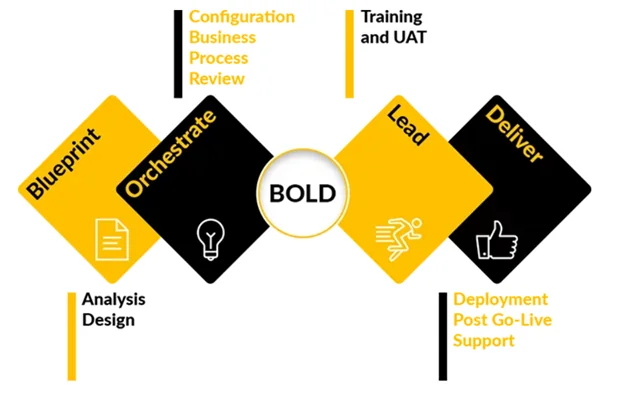
For more information, read “A Guide to NetSuite Implementation: The Importance of Configuration Sequence.”
Innovate and Grow with AlphaBOLD's ERP Implementation
AlphaBOLD's ERP implementation services are designed to help you innovate, expand, and reach your operational objectives.
Request a DemoConclusion
To sum up, in 2025, ERP systems are undergoing a dramatic change. Businesses can achieve unprecedented levels of efficiency by embracing cutting-edge trends like mobile ERP, two-tier ERP, AI and ML, and quantum computing integration. AlphaBOLD, as an industry expert, has the experience and expertise to navigate you through. Whether your business objective is to use quantum computing or to deploy a two-tier ERP system, our experts can do it all. We can work with you to find and implement the ideal ERP solution for your business requirements.
Explore Recent Blog Posts
